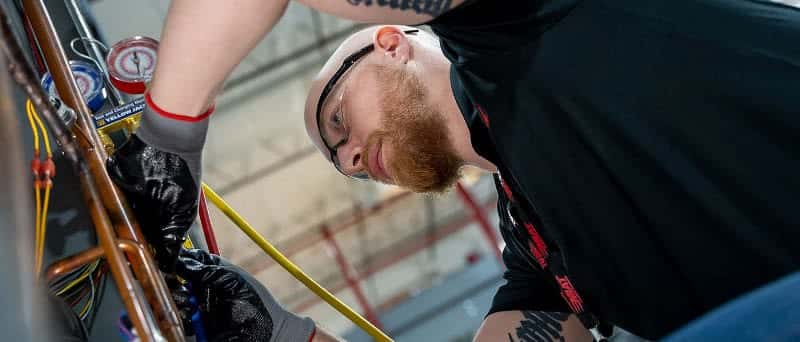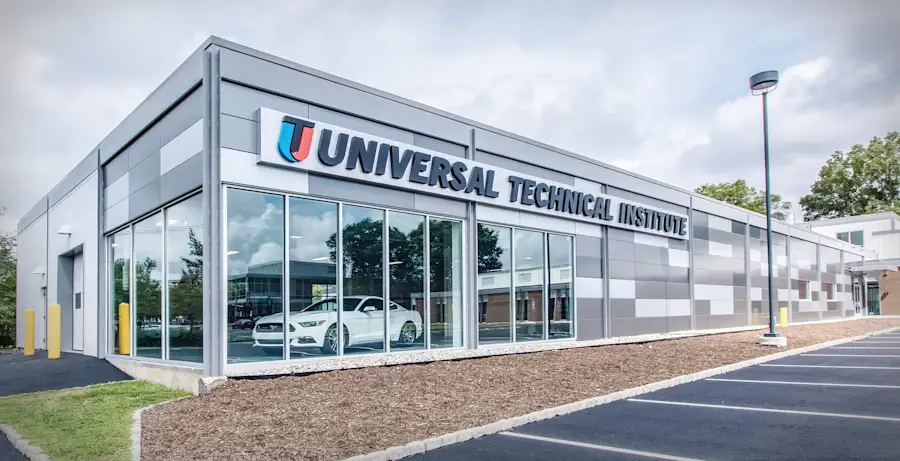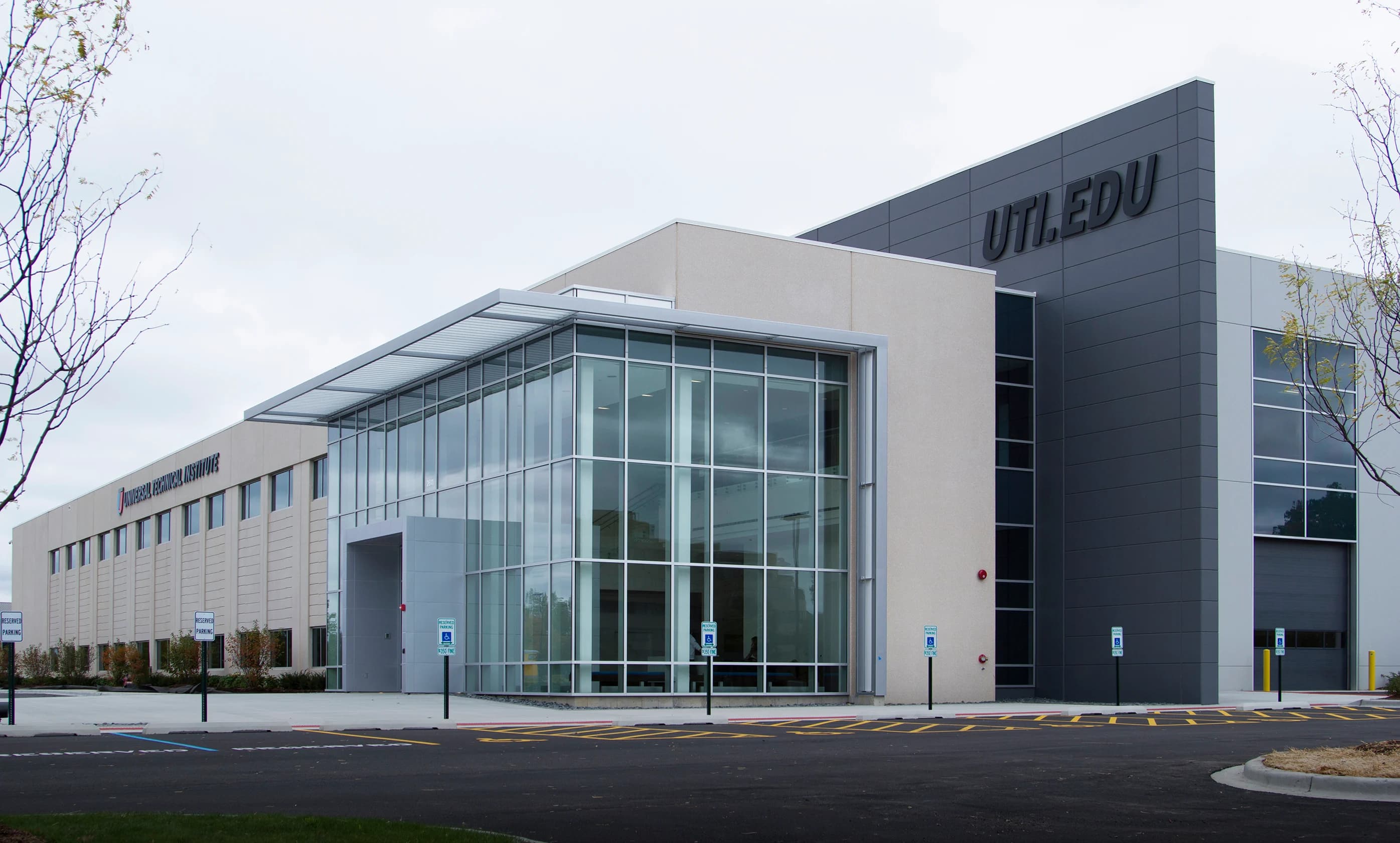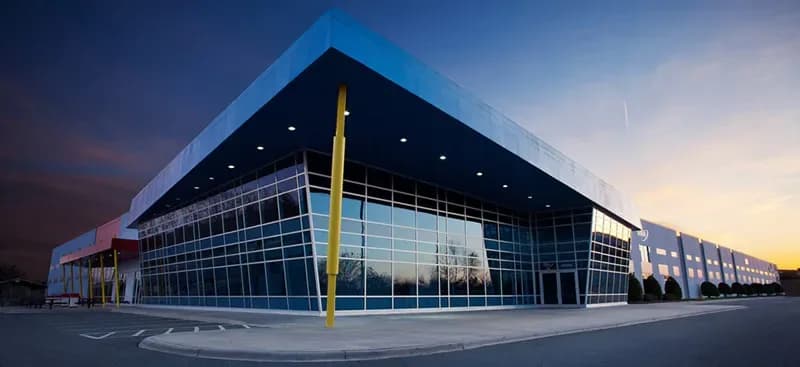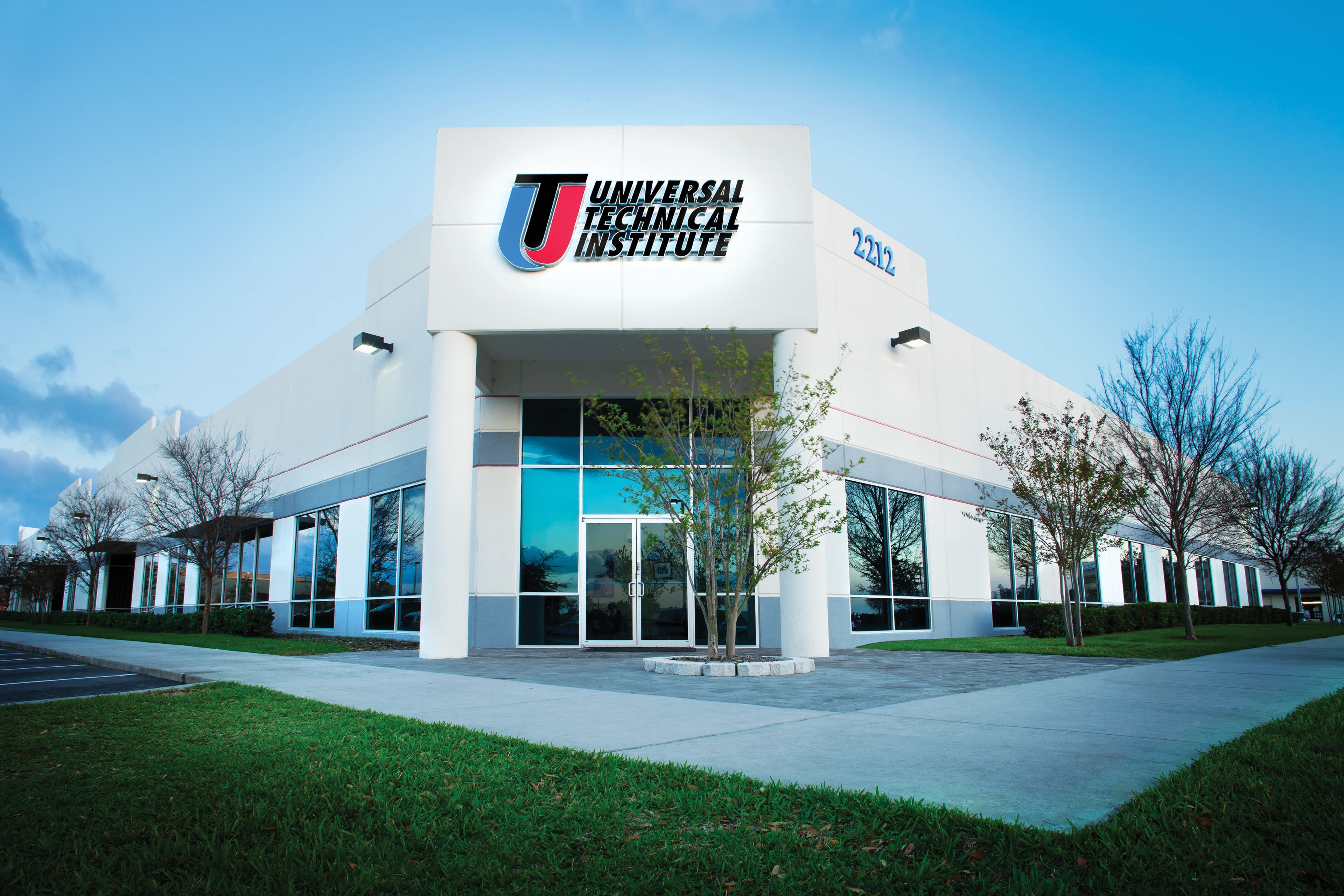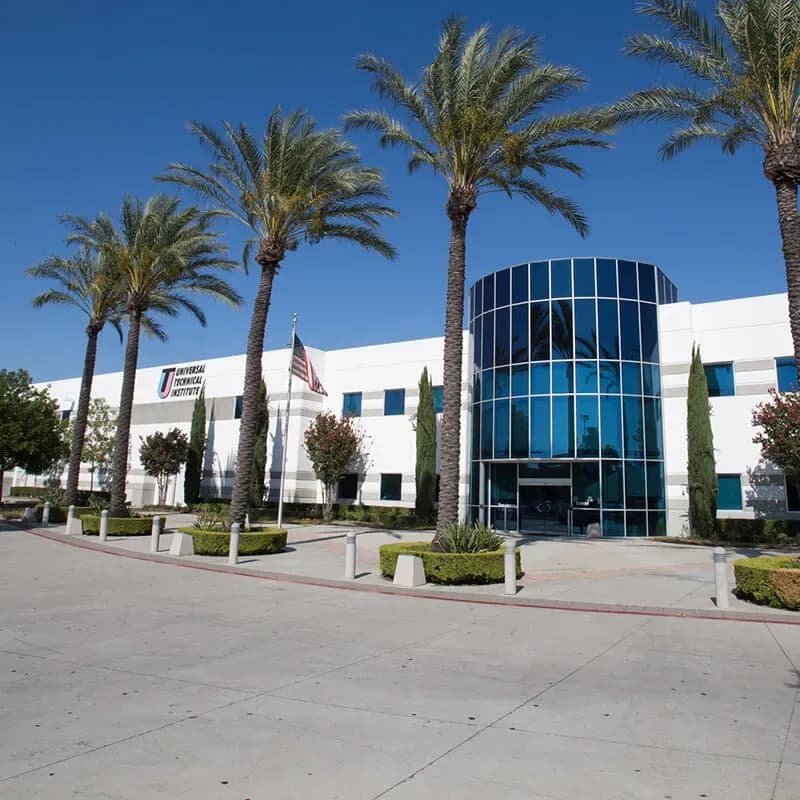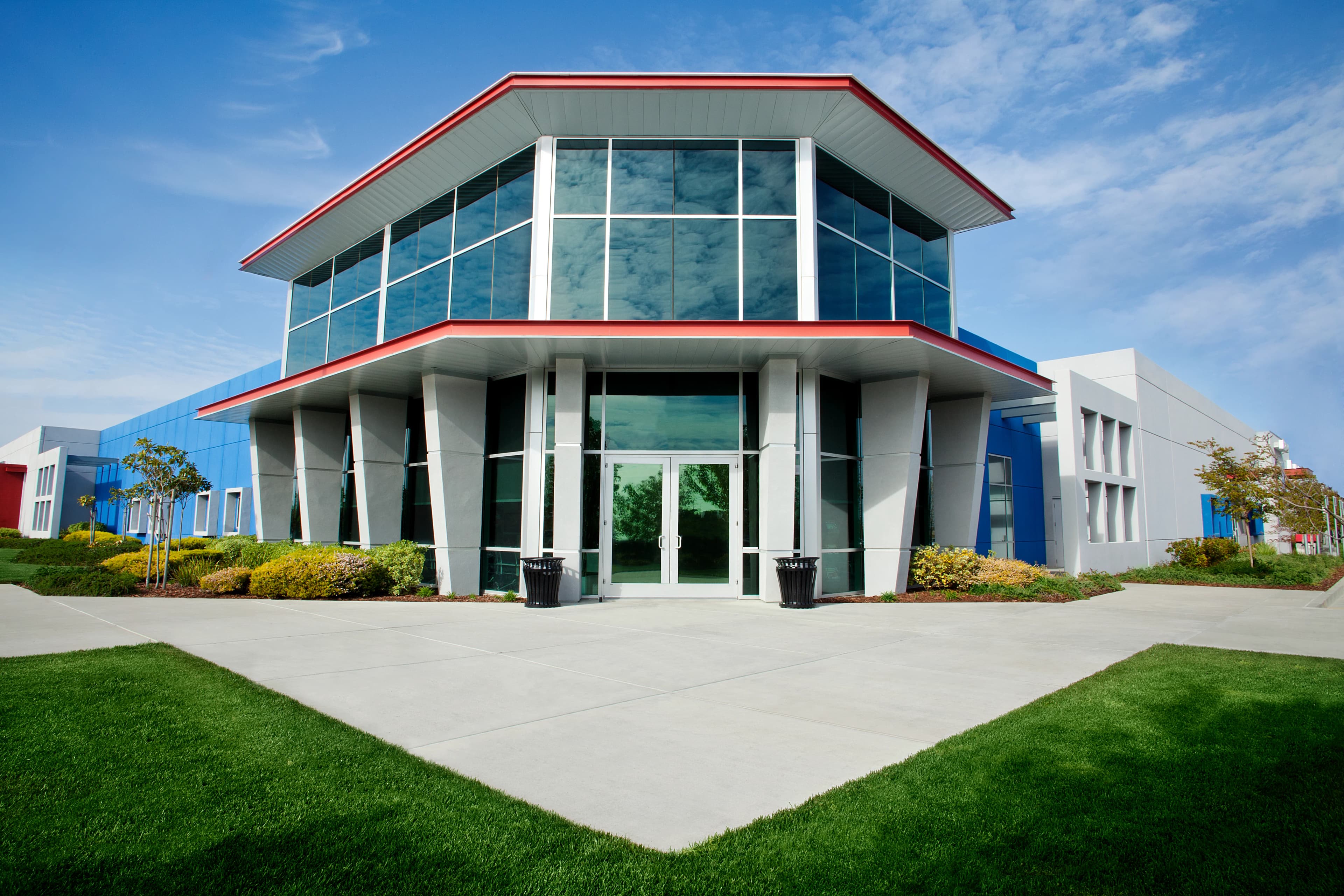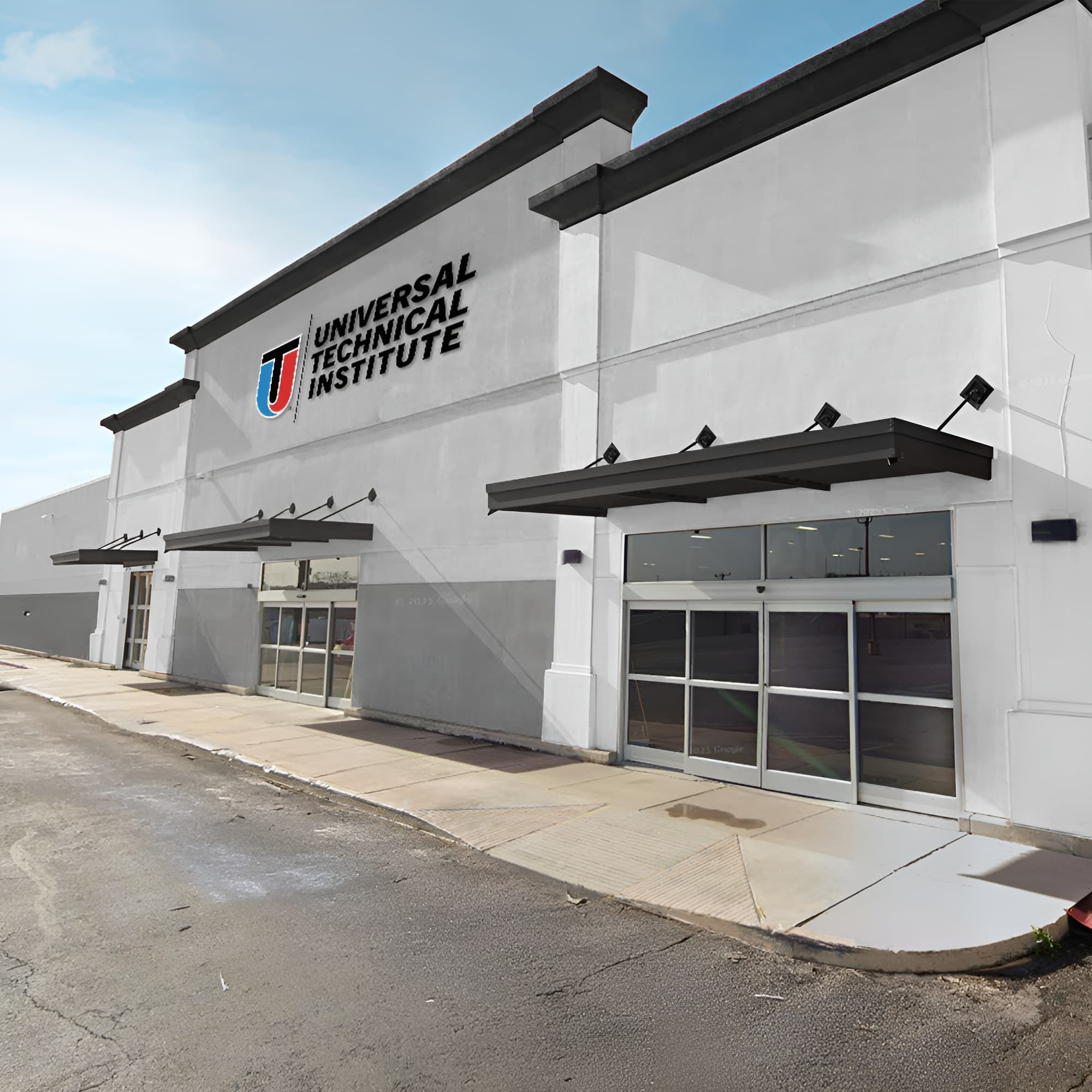HVACR Technician Program Overview
The HVACR Technician program introduces students to foundational HVACR skills through hands-on training and technical instruction, supporting preparation for entry-level HVAC and refrigeration support roles and select industry-recognized certifications, depending on program and location.
What you'll learn in UTI's HVACR training
- HVACR system installation fundamentals
- Electrical troubleshooting for heating and cooling systems
- Refrigeration system maintenance and diagnostics
- Safety protocols and industry best practices
- Blueprint reading and system layout basics
- Preventive maintenance techniques
These skills are taught through a combination of classroom instruction and hands-on lab training designed to reflect real-world HVACR environments.
Industry-standard HVACR certifications
UTI's HVACR school is designed to prepare students to test for widely recognized HVACR certifications, such as the following:
- EPA Section 608 Technician Certification
- North American Technician Excellence (NATE) Core exam*
- OHSA 10-Hour construction training
- R410A refrigerant safety
*Technicians seeking NATE certification take two exams: the Core exam and Specialty exam. UTI offers prep and testing for the Core exam only; once passed, technicians are enabled to take the Specialty exam through an employer.
9-10 months
15 campuses
HVACR Technician Course Topics
Working on HVACR systems requires an awareness of safety procedures, knowledge of heating and cooling, familiarity with tools used in the industry and the ability to perform a variety of manual skills. At our HVACR trade school, you can learn all of this and more. Some of the courses covered in the HVACR Technician program include:33
- HVAC Core & Basic Electricity
- Electric Motors, OSHA
- Basic Refrigeration Systems
- Air Conditioning Systems I
- Heating Systems I
- Indoor Air Fundamentals and Duct Fabrication
- Heating Systems II
- Air Conditioning Systems II
- Construction Codes and EPA 608
- Alternative Heating Systems
Skills you can gain in the HVACR Technician program
The HVACR training at UTI helps students build in-demand skills for careers installing, maintaining and repairing heating, ventilation, air conditioning and refrigeration systems. Training covers troubleshooting, diagnostics and safety standards like EPA regulations. Many students come to UTI to start a new chapter, and our hands-on approach can help you prepare for a new career path along with support from Career Services after graduation.
HVACR Technician School Locations
Train for an In-Demand Career
$59,810
40,000+
How UTI prepares graduates for HVACR careers1
UTI's HVACR trade school was designed in conjunction with industry leaders to ensure its curriculum aligns with current technologies and workforce needs, equipping graduates with the skills employers seek. Graduates of the HVACR program also have access to our Career Services team which has relationships with a broad network of employers and will provide students with resources and opportunities to pursue roles in the HVACR industry.
Empowering the Next Generation of Skilled HVACR Professionals
Our mission is to equip students with comprehensive technical knowledge and hands-on skills in heating, ventilation, air conditioning, and refrigeration systems. We are dedicated to developing qualified HVAC professionals who combine technical knowledge with safety consciousness and problem-solving abilities to meet the evolving needs of residential and commercial environments.
Through our balanced approach of classroom learning and practical application and our strong relationships with industry professionals, we ensure our graduates are equipped with the skills necessary to pursue a career. We strive to make a meaningful impact on the lives of our students, their families, employers, and the communities in which we live and work. Guided by our core principle—changing the world one life at a time—we are dedicated to helping people prepare for careers in the HVACR industry.
Frequently Asked Questions
HVAC is a great career path for those who are natural problem-solvers, enjoy working with their hands and desire a career where they could have the opportunity to go off on their own. With the demand for skilled techs and shorter training programs, many consider HVAC school to be worth it.
Some math is required to become an HVACR technician, but not at a high level. Simple math operations such as fractions and reading a tape measure are the types of math included.
HVAC isn’t a skill that can be learned overnight — it requires specialized training. However, it’s possible to learn ... maybe quicker than you think! Our program is designed to build your knowledge from the ground up in just 9-10 months, no prior experience required.
There are many different HVAC certifications one can obtain, all of which could be valuable to have as a technician. UTI's HVAC school helps students gain industry-specific skills and prepares them to test to earn up to four professional credentials, like the EPA 608 certification.
The time it takes to get an education in HVACR is dependent on the school you attend. At UTI, you can graduate with a diploma or certificate in as few as 9-10 months.
HVACR technicians install and maintain heating, ventilation, air conditioning and refrigeration systems. Their day-to-day responsibilities can vary depending on their specialty area, but some common environments they service include homes, factories, schools, hospitals and refrigerated warehouses.

